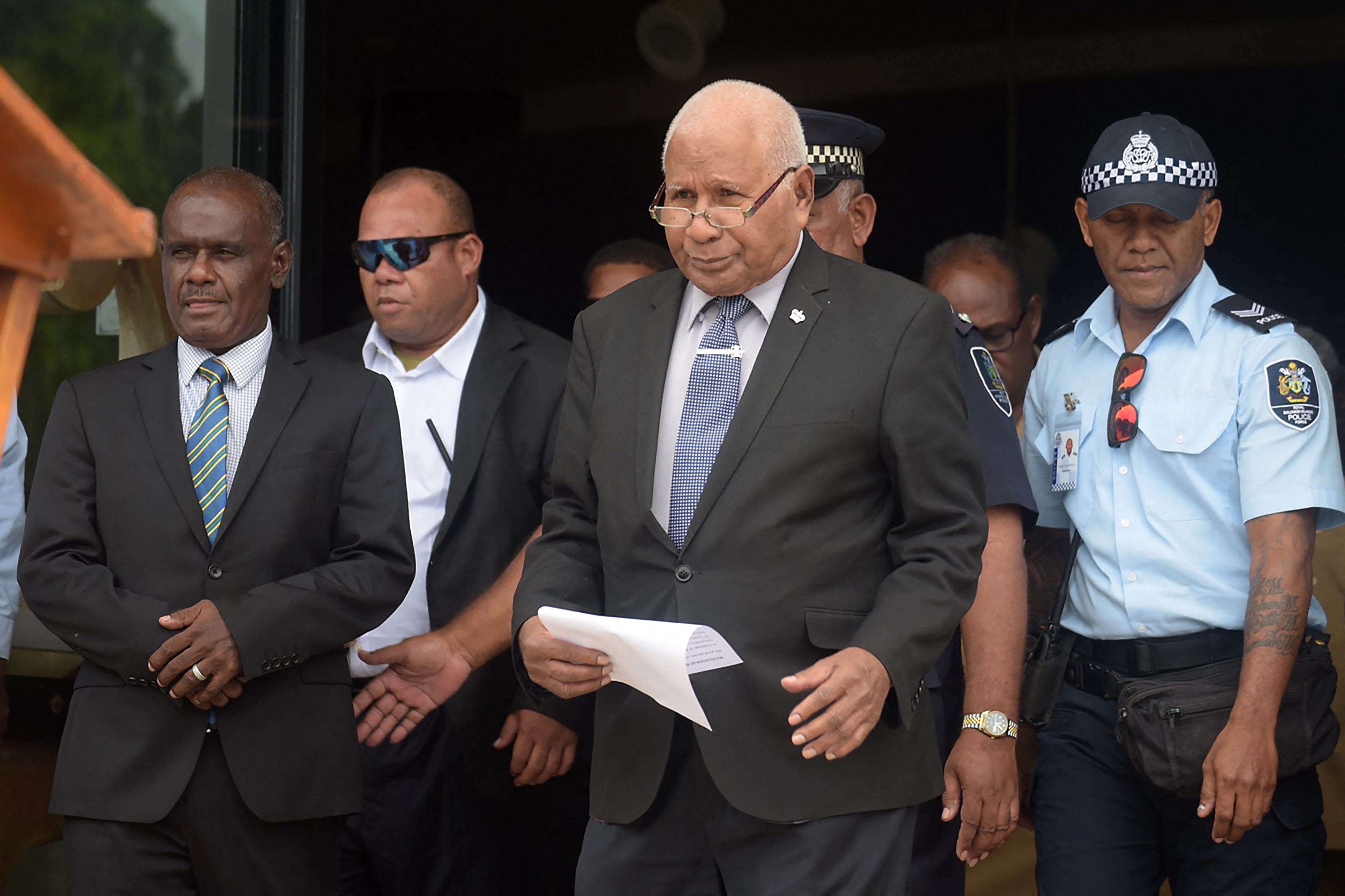Pro-China candidate elected as Solomon Islands PM as capital on alert for post-election violence
Jeremiah Manele’s election seen as Solomon Islands’ continued policy to embrace China
Lawmakers of Solomon Islands have elected a China-friendly candidate as the prime minister in a sign of Beijing’s extending reach across the Pacific.
Jeremiah Manele, the former foreign minister of the islands, has already pledged to continue the international policy focused on building closer ties with China.
Mr Manale won the vote in a 31-18 count, beating his opponent Matthew Wale in the 50-seat parliament, governor general Sir David Vunagi announced outside parliament house.
In his first address after being elected as PM, Mr Manele said “the people have spoken” and called for calm in the face of potential post-election violence.
"Today we show the world we are better than that – we must respect the democratic process for electing our prime minister," he said.
Mr Manale will succeed another pro-Chinese leader, Manasseh Sogavare, a vocal critic of the West who endorsed him following his own lacklustre performance in the April elections.
Mr Manale was the foreign minister in 2019 when the Pacific island switched diplomatic recognition from Taiwan to Beijing and struck a secret security pact that has raised fears of the Chinese Navy gaining a foothold in the region.
On Monday, he said he would keep the "same foreign policy basis – friends to all and enemies to none".

Security in capital Honiara was beefed up as newly elected lawmakers arrived at parliament on Thursday to vote in a secret ballot.
The elections were closely watched by the US, Australia and China amid the intense tussle for geopolitical clout in the region.
Analysts said they expect the newly elected PM would be more diplomatic in his approach than his predecessor and be less confrontational to western partners.
Lowy Institute research fellow Mihai Sora, a former Australian diplomat in the Solomon Islands, said Mr Manele has "a strong track record of working well with all international partners", compared to Mr Sogavare who was "a polarising figure".
Australian National University’s Pacific expert Graeme Smith said Mr Manele was capable and "a big change in style" for the Solomon Islands.
Australian prime minister Anthony Albanese congratulated Mr Manale and said he looked forward to working with him.
"Australia and Solomon Islands are close friends and our futures are connected," he wrote on social media platform X.
China‘s embassy said in a Facebook post it looked forward to "working with you to develop China-Solomon Islands relations and deliver more benefits to our peoples".
In April, a national election concluded without granting a majority to any political party and the two camps actively sought to garner support from independents before the prime ministerial vote.
Mr Sogavare withdrew from the contest to make way for Mr Manele after failing to get enough seats and instead formed a new coalition to support the former diplomat.
The 2019 election of Mr Sogavare triggered riots in the capital city of Honiara due to legal uncertainties regarding his eligibility for the PM position. Subsequently, more severe riots erupted in Honiara in November 2021 following the survival of Mr Sogavare’s leadership against a no-confidence motion initiated by Mr Wale, leading to incidents of arson and looting.
Additional reporting by agencies
Join our commenting forum
Join thought-provoking conversations, follow other Independent readers and see their replies
Comments
Bookmark popover
Removed from bookmarks